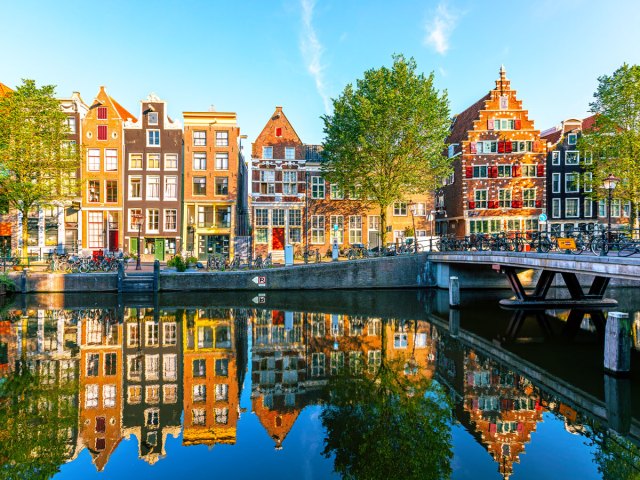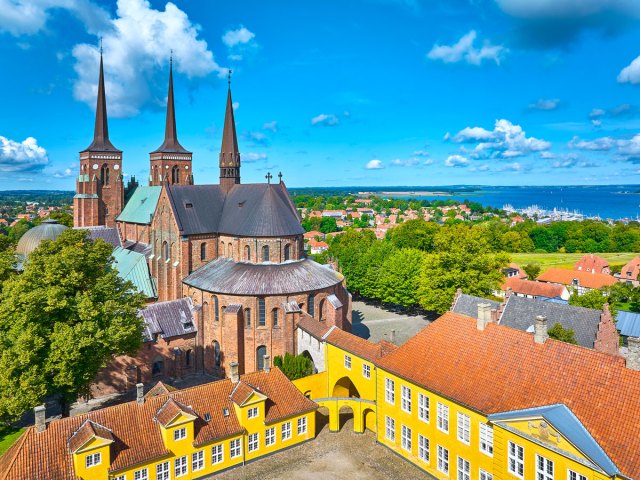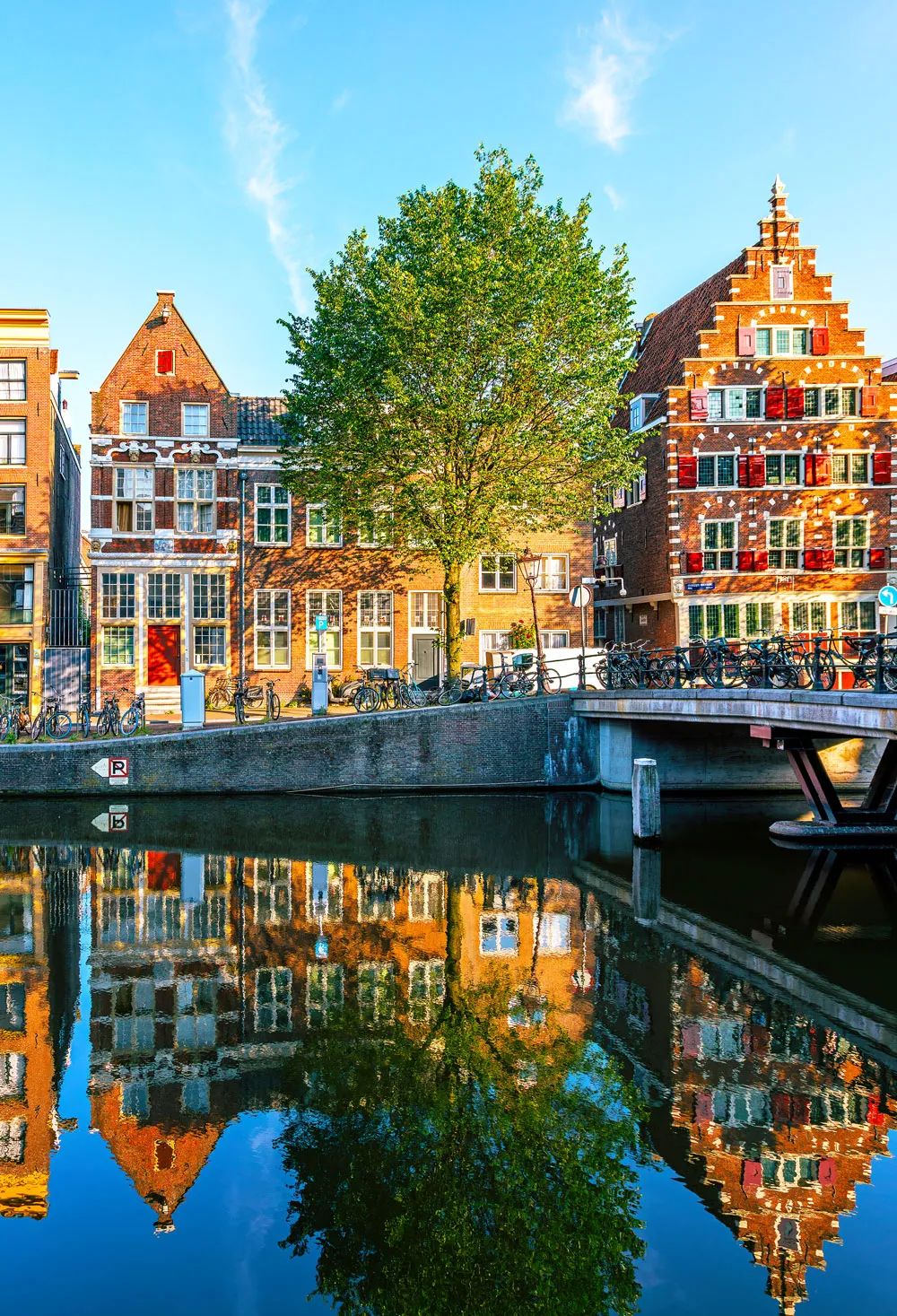In certain countries, punctuality is a way of life. Locals always arrive five minutes ahead of time, trains adhere to a strict schedule, and businesses open and shut exactly when you expect them to. Professor Erin Meyer, author of The Culture Map, refers to this as “linear time,” in which deadlines are prioritized while flexibility is downplayed. This mindset is especially common in parts of northern and central Europe, as well as in a handful of other nations around the globe. So, without further delay, let’s examine five countries with a reputation for punctuality.
Switzerland

The Swiss have a penchant for being on time — perhaps no surprise when you consider the country’s rich history of watchmaking. Precision is paramount in Swiss towns such as La Chaux-de-Fonds and Le Locle, which have been dedicated to watchmaking since the 18th century and have both since been inscribed on UNESCO’s World Heritage List.
Swiss punctuality extends to transportation, too. In 2024, a record 93.2% of the trains operated by Swiss Federal Railways (SBB) arrived within three minutes of the scheduled time — an increase from the 92.54% of trains that arrived on time in the prior year. Previously, Switzerland was ranked as the most reliable rail network in Europe in the 2017 European Railway Performance Index.
Arriving on time is also important to Swiss people even in casual settings. The American Institute of Applied Sciences in Switzerland advises, “Being punctual is seen as a sign of respect,” and “arriving late can be perceived as inconsiderate.” So, when visiting Switzerland, it’s best to get where you need to be a few minutes early so you don’t risk offending anyone.
Germany

Much like their neighbors to the south, Germans pride themselves on being prompt. The country’s Federal Foreign Office warns that “even a few minutes’ delay can offend,” and recommends always showing up five to 10 minutes early for any important appointments, lest you risk rubbing someone the wrong way.
Some historians theorize that this sense of punctuality stems from the German Industrial Revolution of the early 19th century, in which workplaces imposed strict schedules on their employees. Another theory contends that it’s tied to an expansion of the German rail network from 1850 to 1873. This led to more Germans relying on trains and the regimented schedules that were associated with train travel, and that sense of punctuality — what Germans call pünktlich — became widespread in other aspects of society.
Just be careful not to show up too early, as many Germans would sooner stick to a schedule than arrive unexpectedly early. For example, each year at the end of daylight saving time, German trains stop and wait for an hour, even if there’s no traffic or construction ahead. This ensures they reach their destination on time rather than one hour early.
Japan

While some countries in Asia adhere to a more flexible mindset when it comes to scheduling, that’s not the case in Japan, where punctuality is among the most respectable societal traits.
This devotion to timeliness is exemplified by the Japanese railway system, which averaged delays of just 1.6 minutes per train in 2024. When it comes to Japan’s Shinkansen bullet trains, delays are even shorter, at just 20 seconds on average. Japanese train companies have even been known to issue formal apologies for the inconveniences caused by a train leaving 20 seconds early, showing just how important it is to stick to a schedule in Japan.
Being on time in Japan actually means arriving 10 minutes early, according to the Japan Living Guide. You’ll often see employees arrive at their workplace 10 minutes before the start of their day, allowing them time to set up and be prepared for when the workday officially begins. Many hair salons and other appointment-based businesses also ask people to arrive 10 to 15 minutes before the scheduled start time, as that provides a bit of buffer in case of unexpected delays and allows the business to stay on schedule.
Professor Masashi Abe, a sociology and archaeology professor at the Waseda Institute for Advanced Study, notes that while punctuality is expected in modern Japan, that wasn’t always the norm. Abe explains that it was only during the Meiji era from 1868 to 1912 that Japanese society began to modernize and adapt to many Western cultural traditions. Modern timekeeping was introduced during this era, which saw the advent of precise mechanical watches throughout the country. This had a major impact on the Japanese way of life going forward.
The Netherlands

According to the Dutch Review, in the Netherlands, “Early is on time, on time is late, and late is a disgrace.” The Dutch are such sticklers for precision that it’s common to schedule plans weeks in advance, even if it’s just a casual hangout among friends. Randomly dropping by a friend’s house is far less common in Dutch culture, as people tend to stick to a schedule.
This idea of being punctual begins at quite a young age for Dutch children. Many kids are given their first scheduling agenda in primary school, allowing them to learn how to create schedules. By the time they’ve reached adulthood, this idea of punctuality comes as second nature.
Denmark

Inside Copenhagen City Hall, you’ll find Jens Olsen’s World Clock, a historic timepiece that encapsulates the importance of accurate timekeeping in Danish culture. The clock was installed in 1955 and is set to display accurate information for the next 2,500 years. Today, the Ministry of Foreign Affairs of Denmark says that “punctuality is a big deal” among the Danes, and “is an integrated part of the Danish DNA.”
People in Denmark expect guests and fellow Danes alike to stick to a precise schedule, whether the situation is social or professional. As the Daily Scandinavian explains, being punctual is for the benefit of everyone, as it “highlights the Danish appreciation for other people’s time and the importance of planning.” When it comes to business meetings, for example, they’re set to start and end at precisely scheduled times, and often include a dedicated 15-minute block of time for small talk at the start.
Kay Xander Mellish, author of the How To Live in Denmark blog, notes just how different this way of life is from life in the Americas. For example, Mellish wrote on her blog that she once hosted a dinner party scheduled to start at 7 p.m. and noticed guests patiently waiting outside in their cars five minutes beforehand so they could arrive precisely at the desired start time.
Not only does punctuality mean arriving on time in Danish culture, but it also means departing when it’s appropriate to do so. Danes pride themselves on maintaining a healthy work-life balance and will rarely work longer hours. Expect many businesses to shut down around 4 p.m., when Danes leave to pick up their kids and begin preparing dinner.
More from our network
Daily Passport is part of Inbox Studio, an email-first media company. *Indicates a third-party property.
















